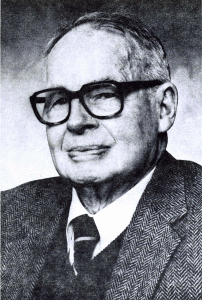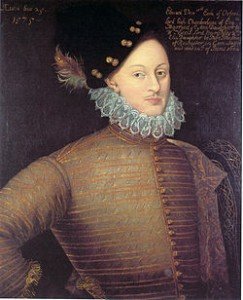Our guest blogger this week is Miles Fowler, who lives in Charlottesville. In this blog he talks about the Shakespeare Controversy and a part played in it by one of his own relatives:
At the same time my mother told me about the Shakespeare authorship controversy, she told me one of our relatives was an anti-Stratfordian, someone who believes that William Shakespeare of Stratford-on-Avon (1564-1616) was not the true author of the plays and poems attributed to him. Later I got to know that relative as “Uncle William.” William Plumer Fowler (1900-1993) was an attorney, mountain climber, and author of poems about his beloved New Hampshire. Having first contemplated the authorship issue in 1959 when he read a series of articles on the subject, he later wrote, “It came as a shock to me, after over half a century spent in the mistaken traditional belief, to realize that the true author was not the Stratfordian William Shakespeare, but someone else.” Since the mid-nineteenth century, several alternative candidates had been proposed, ranging from Sir Francis Bacon (1561-1626) to Edward de Vere, the seventeenth Earl of Oxford (1550-1604), to Queen Elizabeth I (1533-1603). My uncle took his time—fourteen years—before choosing Oxford as his man. Until the twentieth century, Bacon had been the favorite, but Oxford has long since overtaken him. Credit for the shift belongs primarily to Charlton Ogburn, but my uncle made his own contribution.

In 1986, he published his 872-page “Shakespeare Revealed in Oxford’s Letters,” a close analysis of thirty-seven letters written by Oxford—a few written before the Stratford gentleman was born—showing that phrases from the Bard’s plays and poems seem to echo the earlier-written letters. While a few correspondences in word choice and phrasing might be coincidence, an abundance of them are more significant. For example, while Shakespeare prefers the word “military,” Francis Bacon prefers the French “militaire,” and there are many examples of characteristic vocabulary differences between those two writers; yet Oxford and Shakespeare have strikingly similar vocabularies. Perhaps this isn’t as conclusive as my uncle hoped, but it lends some support to his argument that the two writers were one and the same.
After so much exposure to the authorship question, I felt the need to make up my own mind, so I read a number books and pamphlets on the subject, from both sides. One day in 1981, I read something from the anti-Stratfordian camp that argued that a line in “The Return from Parnassus,” a play put on by students at Cambridge University in 1601, proves that some people knew Shakespeare was a university graduate. This would be significant because Oxford was a university graduate while the Stratford man was not. That seemed convincing enough until, the next day, I read a Stratfordian argument that the exact same line proves it was known Shakespeare was not a university graduate. This too seemed convincing, and I was suddenly reminded of the Sufi story about the magistrate who responds to the entreaties of both prosecutor and plaintiff with, “I believe you are right.” When one party complains, “We can’t both be right,” the magistrate answers, “I believe you are right.” So I further compared the texts of both arguments until it dawned on me that, while each side saw what it wanted to see, the line proves neither that Shakespeare was a university student nor that he was not.

I believe that the anti-Stratfordians have performed a service by bringing out information that should be used (more than it has been) to help us understand the plays and poems attributed Shakespeare, but I also believe that trying to prove the identity of the author beyond a reasonable doubt is a dead end. That applies equally to both sides of the controversy. Maintaining that, even if we did not already have the tradition that the man from Stratford wrote the plays and poems, we could nevertheless prove from scratch that the Stratford man did write them, leads down as blind an alley as trying to prove he did not. The trail is too old and too cold, and the gaps in what we can know are as permanent as a frozen yawn. There is something to be said for letting the matter lie. Now, if he were here, would the Bard ask, “Pun intended?”
Miles Fowler
Follow us!Share this post with your friends.
